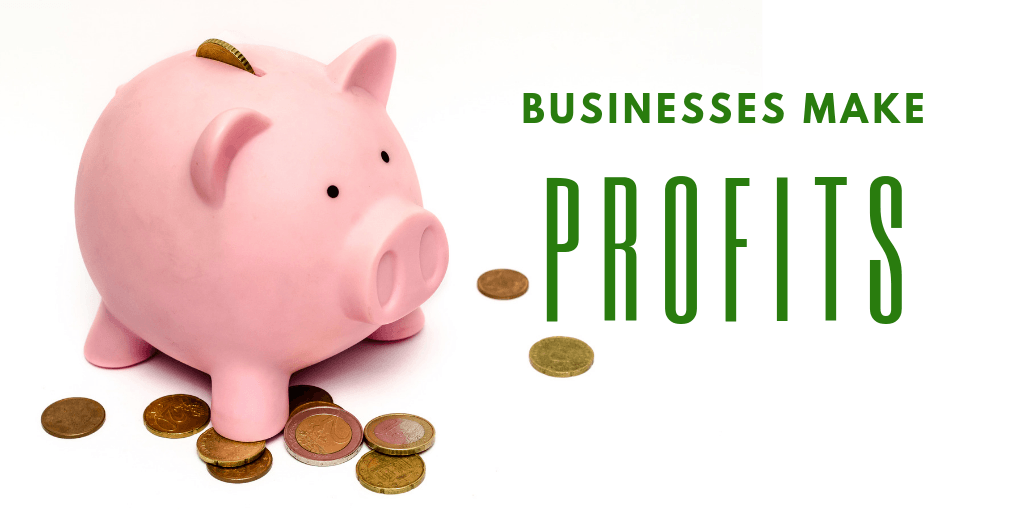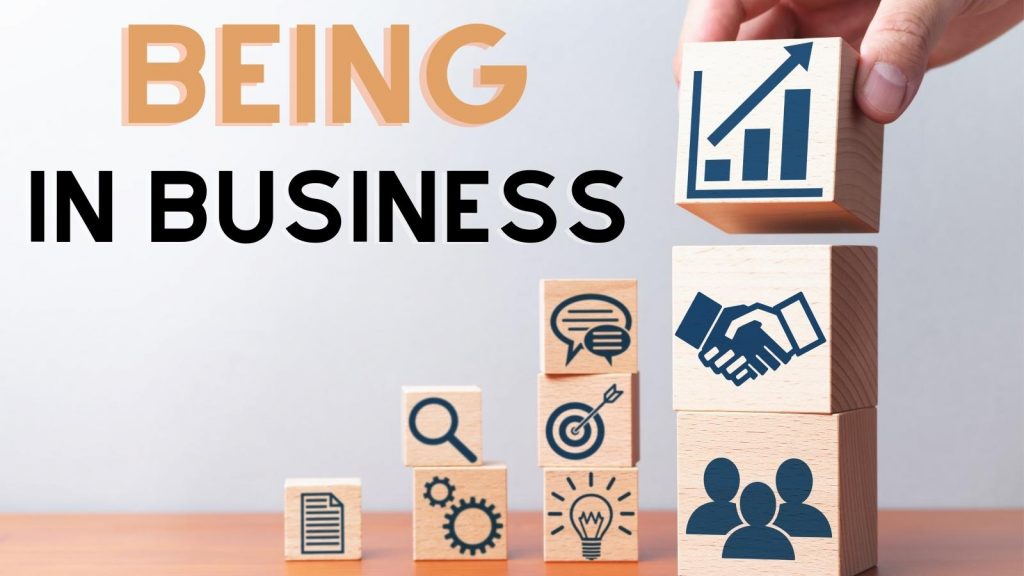If you are reading this, chances are you’re considering entrepreneurship. The concept of being in business and starting a business is both exhilarating and daunting at the same time. Therefore, where to begin owning your own business can be quite intimidating!
Because of these obstacles, this “Business of Business” segment of my blog will be delivered in small doses so as not to overwhelm and squash your enthusiasm.
It will focus on the “business” side of developing entrepreneurship and the structural side of starting any general business.
Starting a business vs getting a job is quite different, as you will see.
It will be presented in a series of blogs that feature useful information and suggestions for business owners. Feedback is appreciated and encouraged.
Table of Contents
What Is A Business?
A Business makes money by producing, buying, and selling a product or service. Simply put, it is “any activity or enterprise entered into for profit”.
A business does not constitute the automatic assumption that it is a company or a corporation.

Hence, if the activity does not generate a profit (and is neither a not-for-profit nor a non-profit organization), it is considered a hobby for legal and tax purposes.
Being In Business: A Business Or A Hobby?
The foremost thought in your mind is whether you can make a profit from your venture or whether it will become your “hobby.”
Whether your business is large or small, the “startup” process is still the same. Therefore, you need to answer a range of questions before you can move forward and begin writing a business plan.
What do you hope to gain from this endeavor? Are you willing to dedicate yourself and your time to making this idea worthwhile and profitable? Or are you looking at this venture as a sideline investment?
Once you formulate your plan, you need to evaluate it. Will it become financially successful? Or are you doing this for self-gratification or simply the “love of adventure”? That’s sort of like a hobby.
Next, let’s assume you’re like most people. You dream about having a little of both and want to be profitable by doing what you love.
Whether your idea is related to a product or a service, the concept of any business is virtually the same. The benefits, problems, pitfalls, and “headaches” apply equally to any size or type of business.
The only difference is that there may be more dollar signs at the end of the year. But Business is Business, no matter what the size. It could be a small “mom-and-pop” operation or a multi-million-dollar corporation.
Finally, the bottom line is, “A profit is a profit, no matter how small. If you make a profit, then it’s a Business.”
So, you’ve decided to start a business, and you want to launch a profitable venture, such as a construction company. Now what?
Evaluate Your Business Idea
You need to confirm in your mind whether there is a need and a market for your endeavor.
The best way to do that is to evaluate your product, market, and competition.
A visual analysis of your business plan will help you see the reality of your endeavor more clearly. Consider reverting to those yesteryears when the writing implement of choice was a pen and paper.
While this idea may seem out of your comfort zone, writing your thoughts down on paper and seeing them in black and white can give them a new dimension and perspective.
Identify Your Target Audience
First, begin by defining your target audience and conducting a market anlaysis of your product or service. But, on paper, the answers to these key profitability questions.
Is there a need for your business? Who is your ideal customer? Who can benefit from your product or service? Are there other companies offering similar products or services?
What is their pricing structure? Can you make money by providing this service or selling this product?
Consider consulting with your friends and family if you have difficulty answering these questions. Interview them as one of your potential clients. Get their feedback.
Conduct a focus group. Look for the answers around you. Search the internet. Then, go with your gut.
What Makes Your Business Different?
What will make your company successful? Do you know what will set you apart from others in your business? Why should a customer choose you over another company in your field?
To find answers to these and other questions, you may want to consider identifying your Unique Selling Position – USP.
A unique selling position is a statement that outlines how your business, product, or service differs from your competition. It identifies what makes your company the better choice and why your target clients should choose you over the competition. It’s also an essential part of creating “your unique brand.”
When creating your USP, be sure to include a vivid description of your product or services. List the things that your business does very well.
Research The Competition Of Your Business
Knowledge is power. Know your Competition! Who else is out there competing for your dollars?
You must conduct thorough competitive market analysis before venturing into any new business.
Today, this process is right at your fingertips. Gone are the days of tedious research and long hours at the library. Most of your research will be comprised of information found on the internet.
However, regardless of the source of your analytical information, try following the SWOT method.
A SWOT analysis is a strategic planning tool that helps an owner identify his/her strengths and weaknesses. It’s a valuable starting point when dissecting a plethora of information. It will also help you create a strategic marketing plan.
Start by listing your…. SWOT.
Pros and Cons of Being In Business
Strengths | Weaknesses | Opportunities | Threats
Strengths: The attributes that will HELP your business. What are your unique skills? Do you have experience with your product or service? What do you do best?
Weaknesses: These are the attributes that could HURT your business. What areas do you need improvement in? Do you lack resources? What part of your business is not profitable? Do you know what time and money costs you? Lastly, what resources do you lack?
Opportunities: external conditions that will HELP your venture. What are your business goals? How can you do more with your existing customers or clients? Next, can you use technology to enhance your business?
Threats: The external conditions that could HURT your company. What obstacles do you face? Do you know the strengths of your biggest competitors? What are your competitors doing that you’re not? What’s going on in the economy? Are there related products or services that could provide an opportunity for your venture?
In Conclusion – Being In Business
The Business of being in business only poses some of the many questions entrepreneurs face when forming a new venture.
Therefore, there are always more questions to ponder for your business planning as you focus on the road ahead.
Let us know what you need to know about starting your business today!




